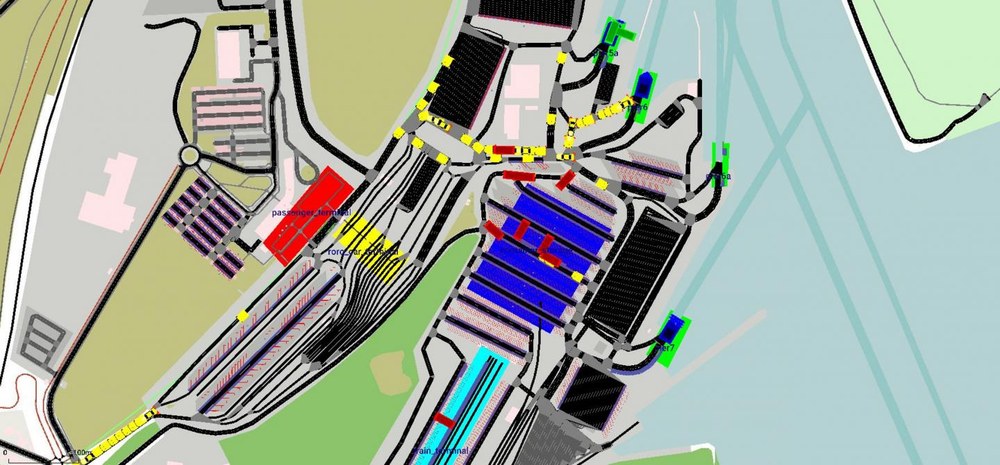Institute of Communications and Navigation
The Institute of Communications and Navigation develops and investigates new systems and methods for radio transmission and radiolocation.

The FuturePorts project researches and develops technologies for the ports of the future, actively shaping pivotal hubs and transshipment points for global trade and transport. Topics relating to automation, digitalisation, networking, energy supply and the efficiency of port processes are being addressed across waterway, road and rail transport modes. Through these efforts, the project aims to contribute supportively to the extensive and essential transformation processes within ports, fostering efficient and robust transport networks.
A system is being developed for innovative, efficient and resource-conserving traffic management in both the approach and the harbour basin, integrating data from land and ship sources and tailored for highly automated vessels. This initiative aims to enhance safe navigation, particularly in narrow waterways. Advancements in ship automation are being pursued through collaborative efforts involving multi-sensor-based manoeuvre assistance systems, with practical demonstrations conducted in waterways, locks, and at jetties. Model-based methods are employed to address aspects of ensuring, approving and certifying highly automated systems, encompassing technology, sensors, and human interactions.
Utilising digital twins aims to enhance the efficiency and resilience of goods transportation, particularly focusing on the trajectory of goods within the landside harbour area. These twins, comprised of interconnected software and hardware systems, integrate real-time data from sensor networks and various information sources with intermodal simulation models. This integration facilitates data-driven and optimised traffic management. Sensors, tracking mechanisms and artificial intelligence play pivotal roles in acquiring traffic data, akin to manoeuvre assistance systems employed in maritime operations. Additionally, research is underway to explore innovative and appealing harbour connections, along with emission-free propulsion technologies for both ships and traction units.
Technology transfer and migration strategies for all project components are being advanced through collaboration with pertinent stakeholders in the port industry. Conducting activities in pertinent test regions such as the Spree-Oder waterway or harbours in Braunschweig, Duisburg, and Lübeck, for instance, holds significant importance. These, alongside other harbours, will serve as demonstration sites for showcasing project components.
